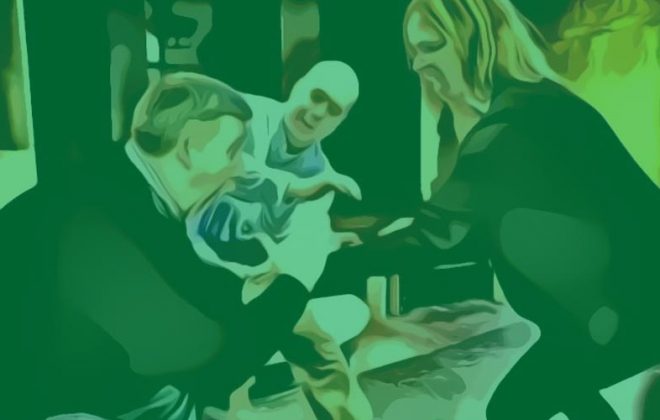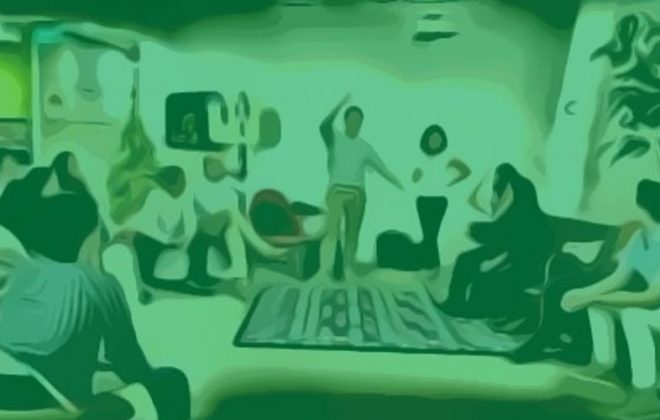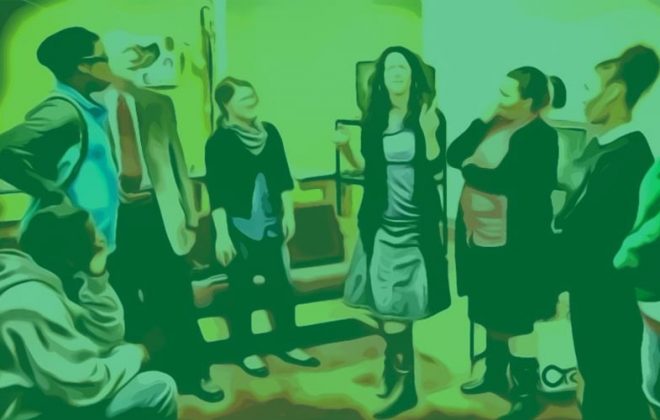
Benefits of Teaching Children Improv
A vital part of a healthy childhood is playtime, in which children band together to create a game, a scene, or even a whole imaginary world. Improv training from a young age can not only assist in the creativity involved in imaginative play, but it can also help to shape children into more confident and witty adults. They will become quick thinkers and more articulate speakers, more mature and respectful of their peers, and perhaps most importantly, they will discover how fun learning can be.
The most common thing for children to do on the playground is make-believe games. Groups of children will pretend to be fairies, or pirates, or even just a normal family playing house. One of the reasons many adults become interested in improv is because it allows them to go back to their days of playing pretend. But teaching improv to children who still play this way can have a good impact on their playtime. Not only will the stories they come up with be more engaging and interesting, but they will be better able to work with their friends to make their fantasies into reality. Improv and playtime both revolve around cooperative worldbuilding, so knowing the ins and outs of one can enhance your experience with the other.
Improv can also help children become more articulate. In improv, it is important to be able to effectively get your message across in a scene. If a child knows how to do this, they will be better able to explain their problems and concerns without resorting to things like crying or hitting. In addition, children can become quicker thinkers by studying improv. This can help in many situations, including but not limited to tests and stranger danger. Being able to do problems more quickly on a test can greatly improve grades, and being able to think on their feet might even help a child get out of a potentially dangerous situation, perhaps by pretending their parents are calling them, or by pretending they are actually with another family at the playground.
A big part of improv is making your partner look good. When doing a scene, you want to make your scene partner look as cool and as witty as possible, and so you do everything in your power to help them out. Children are known for being selfish and greedy, because they have not yet learned to properly coexist with others. Learning improv can greatly speed up this process by teaching children to be more considerate of others. In order to “make your scene partner look good,” obviously you have to learn to share the stage. If children can learn to share the stage with someone else, they can also learn to share more with their peers.
Perhaps the best thing that a child can take away from improv is the notion that learning new things can be a fun experience. Improv is all about creating and experiencing new things. So, once children start to associate a positive connotation with improv, they will start viewing other learning experiences as positive, as well. They discover that they have the option to “yes, and” life, and go on amazing and incredible journeys.
Tags In
Categories
- Advocacy (1)
- Articulate (2)
- From the Advisory Board (1)
- Improv (13)
- Improv and Children (6)
- Improv Exercises (28)
- Improv Life Lessons (23)
- Interviews (2)
- ITG Blog (29)
- ITG Games and Exercises (26)
- ITG Podcasts (3)
- Look Who Gets It (10)
- Meditation (1)
- Neuroplasticity (5)
- Self-Care (9)
- Storytelling (3)
- Teamwork (6)
- Therapy (5)
- Yes, and (13)




